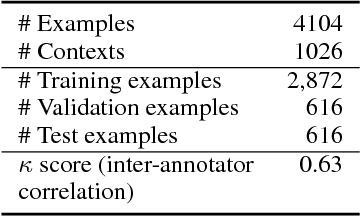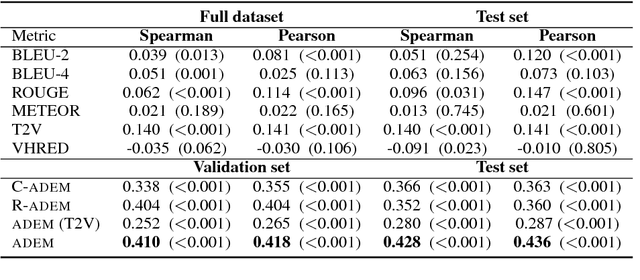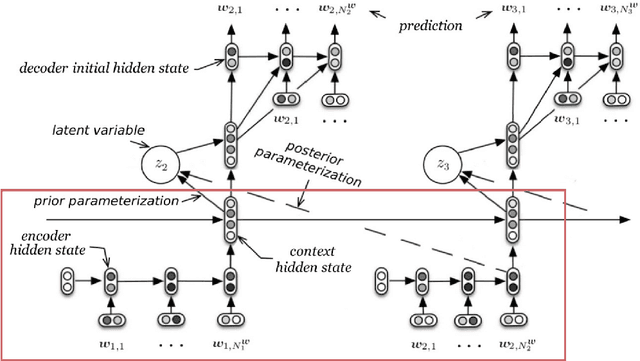Nicolas Angelard-Gontier
Towards an Automatic Turing Test: Learning to Evaluate Dialogue Responses
Jan 16, 2018



Abstract:Automatically evaluating the quality of dialogue responses for unstructured domains is a challenging problem. Unfortunately, existing automatic evaluation metrics are biased and correlate very poorly with human judgements of response quality. Yet having an accurate automatic evaluation procedure is crucial for dialogue research, as it allows rapid prototyping and testing of new models with fewer expensive human evaluations. In response to this challenge, we formulate automatic dialogue evaluation as a learning problem. We present an evaluation model (ADEM) that learns to predict human-like scores to input responses, using a new dataset of human response scores. We show that the ADEM model's predictions correlate significantly, and at a level much higher than word-overlap metrics such as BLEU, with human judgements at both the utterance and system-level. We also show that ADEM can generalize to evaluating dialogue models unseen during training, an important step for automatic dialogue evaluation.
* ACL 2017
Ethical Challenges in Data-Driven Dialogue Systems
Nov 24, 2017



Abstract:The use of dialogue systems as a medium for human-machine interaction is an increasingly prevalent paradigm. A growing number of dialogue systems use conversation strategies that are learned from large datasets. There are well documented instances where interactions with these system have resulted in biased or even offensive conversations due to the data-driven training process. Here, we highlight potential ethical issues that arise in dialogue systems research, including: implicit biases in data-driven systems, the rise of adversarial examples, potential sources of privacy violations, safety concerns, special considerations for reinforcement learning systems, and reproducibility concerns. We also suggest areas stemming from these issues that deserve further investigation. Through this initial survey, we hope to spur research leading to robust, safe, and ethically sound dialogue systems.
 Add to Chrome
Add to Chrome Add to Firefox
Add to Firefox Add to Edge
Add to Edge